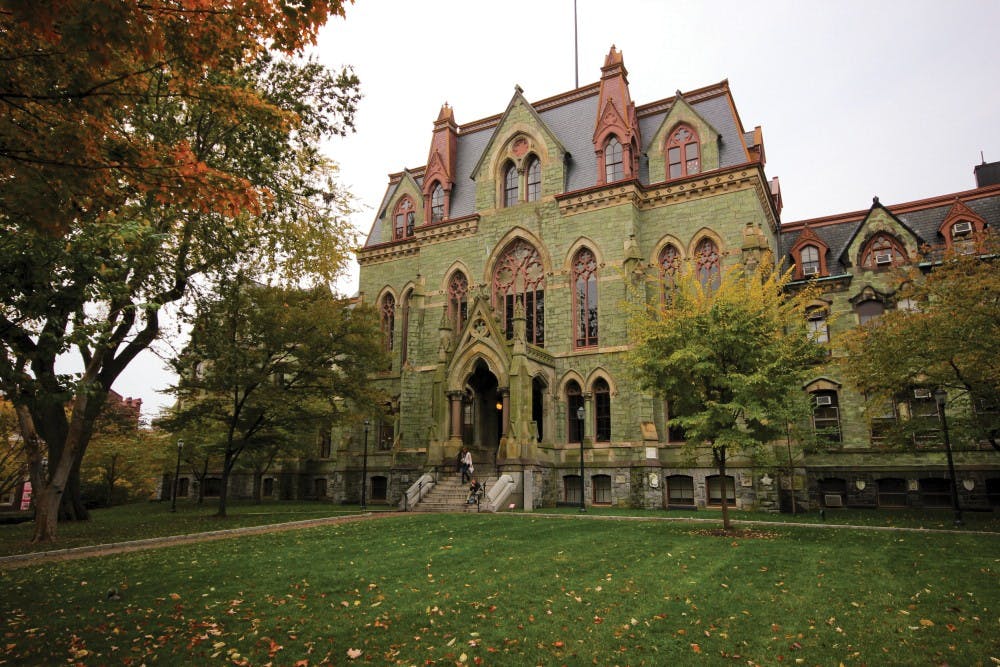
In line with a multi-year trend, tuition has increased another 3.9 percent this year. Despite student pushback, Philadelphia accountant Jimmy Mo said this increase is “very reasonable.”
Mo, a partner at Eisner Amper LLP, said universities increase tuition because costs also increase annually.
Bonnie Gibson, vice president for budget and management analysis at Penn, confirmed this. She added that higher education is a “human-intensive operation,” meaning schools need to increase faculty salaries and hire new faculty.
Matthew Johnson, a lecturer in the Critical Writing Program, said “there’s usually a slight increase [in salary] based on years of service, but it’s been inconsistent over the years.”
Four additional faculty members declined to comment to The Daily Pennsylvanian about their annual salary and benefit raises.
“This is my personal opinion, but when I see companies with salary freezes, that tells me there is more cause for concern,” Mo said. “Three percent is fairly standard for a typical [salary] raise year after year.”
He said the increase is reasonable because faculty members need to have their quality of life met yearly. However, Mo admitted that as a student his “biggest concern would be tuition increase.”
Jim English, English professor, director of the Penn Humanities Forum and founding director of the Price Lab for Digital Humanities, said universities spend money on increasing benefits for faculty and staff in addition to salary. He noted that that the growth of administrations in higher education over the last forty years could also be driving these increases in costs.
“When I was in college, we didn’t have three-quarters or more of the administrative offices that we take for granted now — the people who work, say, in the Office of Disability, the mental health people, the many sub-Deans and the counseling service,” English said. “That has driven a lot of the growth.”
He said “retention battles” could also push tuition upward. Penn may have to offer a higher salary to a faculty member it is recruiting from another university, or to a current Penn faculty member who has been offered an appealing job at a rival institution.
“In my department, every year a number of faculty receive offers from Berkeley, or Yale, or Harvard, or Columbia or somewhere else that offers them a big raise and says ‘Come work for us instead,’” English said. “Penn does not want to lose all the faculty that they are dependent on for their reputation and for much of the work that is done here.”
College senior and Undergraduate Assembly President Kat McKay acknowledged that students don’t see these benefits — they only see a higher tuition bill.
Although the 3.9 percent increase is on pace with higher education trends, she said it doesn’t match the annual average increase in an American family’s net wealth or students’ abilities pay tuition on a year-to-year basis. McKay added that this is the “main driver” behind student dissatisfaction.
“[The rate of tuition increase] is higher than these metrics that students actually use, like inflation, that students feel and use to account for how they pay for Penn,” McKay said.
College senior Eric Tepper also noted that there is an information gap between students and administrators on budgeting and tuition. The University needs to communicate budgeting decisions to students with more readable documents like an annotated budget, he said.
“3.9 percent isn’t just a number they choose,” Tepper said. “It is well-thought-out, which is something that Bonnie [Gibson] and other administrators have communicated to Kat and I but is not communicated as often and as clearly to the rest of the student population.”
Gibson added that Penn must fund a much larger portion of its budget with tuition than its peer institutions do. In the 2015 fiscal year, Princeton’s endowment supported 54 percent of its total budget, while Penn’s endowment supported 11 percent of its budget.
Correction: A previous version of this article misquoted Bonnie Gibson as saying the costs of higher education are "human-incentivized operations." She said higher education is a "human-intensive operation." The DP regrets the error.
The Daily Pennsylvanian is an independent, student-run newspaper. Please consider making a donation to support the coverage that shapes the University. Your generosity ensures a future of strong journalism at Penn.
Donate






